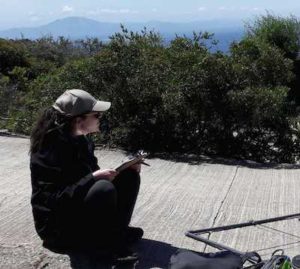
Since I first joined the field of population ecology in 2018, I became really interested in finding out how wild populations will be able to cope with changes in their environment, and what we can potentially do to limit the negative effects of these changes.
For my Master project, I studied the demographic consequences of changes in the seasonal pattern of vital rates (survival, reproduction, growth, etc…) on populations of three species: the yellow-bellied marmot (Marmota flaviventris), the meerkat (Suricata suricatta), and the dewy pine (Drosophyllum lusitanicum) and found out that the direction of these changes can strongly and negatively impact the population.
For my PhD, I will work together with Maria Paniw and Arpat Ozgul on studying the demography of two particularly different carnivores: the Serengeti lion (Panthera leo) and the dewy pine (Drosophyllum lusitanicum), a fire-adapted carnivorous plant inhabiting the Mediterranean heathlands. I will take part in a project which goal will be to assess the consequences of omitting one or more of four key demographic aspects (spatiotemporal autocorrelation of the environment, density dependence of vital rates, their reaction norms to the environmental variables, and the covariation between these different life-history rates) when assessing population viability, and to eventually develop a framework in order to take these four aspects into account to evaluate the fate of populations from a wide range of species and life-history strategies.
CV
- 2019 – present, PhD Student, Department of Evolutionary Biology and Environmental Studies, University of Zurich, Switzerland
- 2016 – 2018, Master in Bioinformatics and Systems Biology, University of Toulouse, France
- 2013 – 2016, Bachelor in Biology, University of Toulouse, France
Publications
- Conquet E., Ozgul O., …, Paniw M. (2023) Demographic consequences of changes in environmental periodicity. Ecology ➤
